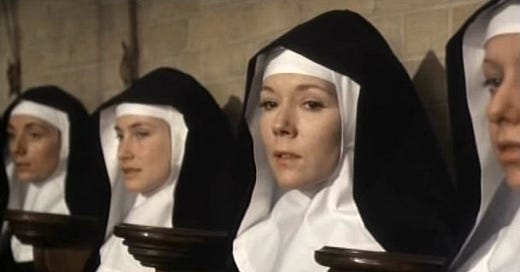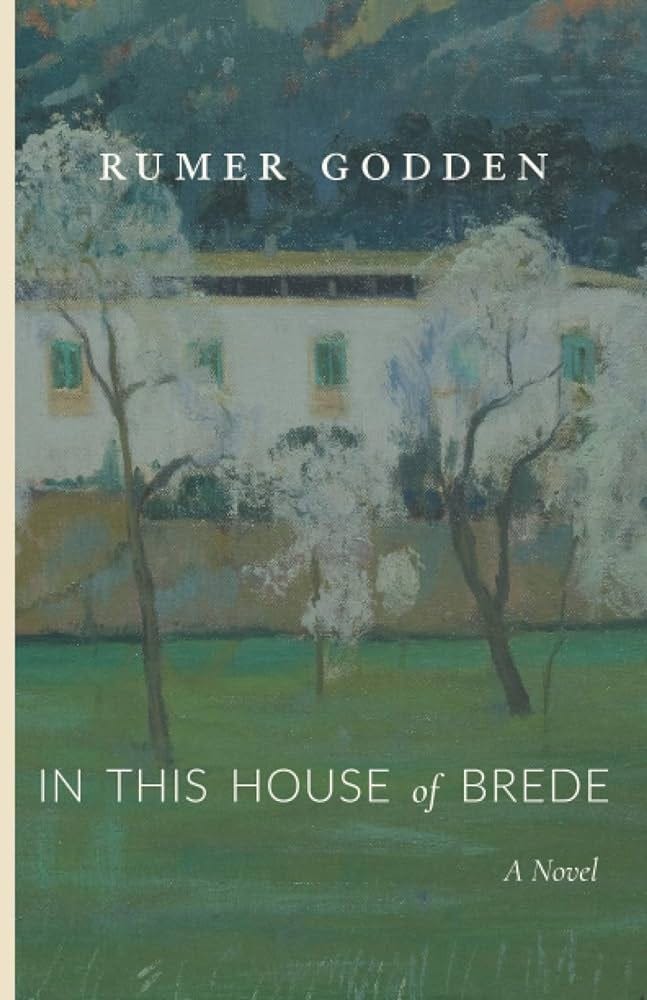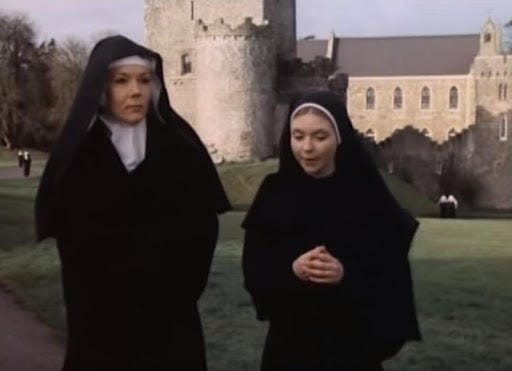One of the best novels I read last year was In This House of Brede by Rumer Godden. It’s about a group of mostly English women in a pre-Vatican II cloistered convent. That may not sound engaging, but the smallness of the setting allows for more examination of characters as they, and we, cannot be distracted by a shifting environment.
Instead, once the characters enter the convent, they stay there. And if they depart, the story does not follow them.
It’s a novel about a convent where no one leaves the grounds. It’s a novel about a group of people dedicated to a mission that will seem silly and trivial to the outside world. It’s a novel about people who love something in a way that very few people can understand.
But why does it make think about grad school?
Entering the cloister
In the novel, when women decide to enter the convent, they must formally knock at the entrance. A nun will speak through the door, saying, “What do you ask?”
The seeker then responds with this exact phrase: “To try my vocation as a Benedictine in this house of Brede.”
To which the nun replies, “We gladly receive you into the family of our holy father, Saint Benedict.”
The nun then opens the door and the seeker enters the monastic life.
This is a very formal sequence. Precise words, weighed heavily, impersonal but weighed heavily with meaning. While they allude to complex ideas that each party probably feels something about, they are someone else’s words.
This is contrasted when one young seeker enters, having literally run into the convent as one escaping the world. In response to the question “What do you ask?” the young woman gasps out, “To come in!”
Despite her failure to follow tradition, she is allowed in. Other characters remark on her atypical entry, both amused and impressed by her sincerity.
And yes, this all really does make me think about grad school.
Looking for home
Here’s what I’m getting at. When we embark on new ventures, we typically use canned phrases based less on our own authentic experience and designed more to fit in with the expectations of our audience.
We develop scripts, connected phrases and ideas which we have in reserve to answer questions like “So, what do you do?” We answer these questions in similar ways, and as we do so, we are often detached from the words we say.
In some sense, we are performing a role in the same way the seeker performs humility to be received at the door. And these words may be based in our real feelings, but by deferring to our routinized scripts, we remove ourselves from engaging with the ideas that we default to expressing.
I see this a lot in graduate school. When people are asked about why they chose IU or what they want to research or what they hope to do after completing their doctoral program, they sigh, lean back, and recite.
We’ve said all these things before, and we say them again with the performatively furrowed brow that tells our audience how hard it is to simplify and summarize the complexity of our ruminations on this question.
I wonder if all of this is akin to saying the script handed to us, saying that we’re trying our vocation as a Benedictine in this house of Brede.
Grasping for authenticity
The problem with my scripted responses is that they usually endeavor to make me presentable, professional, and wise in the eyes of my audience. I want to look cool. I want to look like I know what I’m doing.
What I don’t want is to be honest. Honesty leaves me open to critique. Even if I’m too old to get cyberbullied, I’m not too old to be perceived. I’m not too old to have someone look askance in my direction. I’m not too old to imagine that I am disliked for saying the wrong thing.
The seeker at the convent door gasps out that she simply wants “To come in!” In doing so, she subjects herself to precisely that kind of silent critique. But she also frees herself from being subject to the kind of scripted language that can be imposed on her, that she can impose on herself.
When I think about why I’m here, why I came, what I expect to do, what my goals are, I want to try to focus more on the immediate. I’m not testing my vocation to be a higher education professional. I’m here because I want to be here. I arrived in order to be present.
My goal is the process, the experience, the lifestyle of this education. I can talk all day about my big ideas for the future, but an honest answer is that the only thing I can control is how I handle the processes of my present. I can control whether I quit or not. I can control being “in” it.
So the next time someone asks what I hope to do here, maybe I’ll have the confidence to answer honestly and say “Be here.”
-Matt






